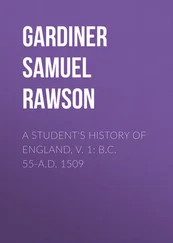George Gardiner - A Forbidden History.The Hadrian enigma
Здесь есть возможность читать онлайн «George Gardiner - A Forbidden History.The Hadrian enigma» весь текст электронной книги совершенно бесплатно (целиком полную версию без сокращений). В некоторых случаях можно слушать аудио, скачать через торрент в формате fb2 и присутствует краткое содержание. Жанр: Исторические приключения, на английском языке. Описание произведения, (предисловие) а так же отзывы посетителей доступны на портале библиотеки ЛибКат.
- Название:A Forbidden History.The Hadrian enigma
- Автор:
- Жанр:
- Год:неизвестен
- ISBN:нет данных
- Рейтинг книги:5 / 5. Голосов: 1
-
Избранное:Добавить в избранное
- Отзывы:
-
Ваша оценка:
- 100
- 1
- 2
- 3
- 4
- 5
A Forbidden History.The Hadrian enigma: краткое содержание, описание и аннотация
Предлагаем к чтению аннотацию, описание, краткое содержание или предисловие (зависит от того, что написал сам автор книги «A Forbidden History.The Hadrian enigma»). Если вы не нашли необходимую информацию о книге — напишите в комментариях, мы постараемся отыскать её.
A Forbidden History.The Hadrian enigma — читать онлайн бесплатно полную книгу (весь текст) целиком
Ниже представлен текст книги, разбитый по страницам. Система сохранения места последней прочитанной страницы, позволяет с удобством читать онлайн бесплатно книгу «A Forbidden History.The Hadrian enigma», без необходимости каждый раз заново искать на чём Вы остановились. Поставьте закладку, и сможете в любой момент перейти на страницу, на которой закончили чтение.
Интервал:
Закладка:
So, does my secret history have a happy ending? Well no, if you consider our loss of the well-favored Bithynian youth. Yet these events possessed their own satisfactions for some.
Titianus's Iberian slave companion Sotira moved into tent chambers with the Governor within the encampment the very same day.
Vibia Sabina Augusta and her gentlewoman companion Julia Balbilla retired from social events during the remainder of the Nile tour. The revelations at the assembly in the temple had unsettled many at Court, including Hadrian's wife.
Instead Balbilla, a classicist poet of note, commissioned stoneworkers to inscribe flattering verses to her Imperial patron on the granite plinths of ancient monuments along the route of the Household's travels. She intends these public tributes in elegant verse to the Augusta to weather the long life of these monuments, perhaps as eternally as those to Antinous by her husband.
It seems devising ingenious ways to survive into eternity is an almost universal compulsion among us these days?
Curiously, later I learned at a distance how the Alexandrian Praetorian, the centurion Lucius Quintus Urbicus, didn't face a court martial. He didn't meet discipline and execution as might be expected. After all, to our view he was implicated somehow in the death of several people including that of Antinous himself. His role seemed as murderous as the Dacian brother and sister.
Instead I am told Urbicus has been quietly reassigned to the service of the Prefect of Praetorians, Quintus Marcius Turbo, at the grim Praetorium Fortress on Rome's Quirinal Hill. I haven't yet fathomed the implications of this unexpected gesture, but it seems to suggest a promotion?
Clarus simply raised an eyebrow charily when I mentioned it, but he diplomatically made no comment.
One wonders at the coincidence of so many of those of African origin involved in the matter, such as Urbicus, Titianus and, more remotely, Prefect Turbo himself. Did I, Clarus, and Surisca miss something?
My complete lack of success in engaging Surisca's professional charms continued. After three days of ineptitude in exacting a Roman male's customary prerogative with a woman, especially a woman well paid for the purpose, I finally desisted. Fortuna is telling me something? Several days in each other's company had changed the nature of the relationship. I became fond of her.
Perhaps it had been the Three Fates' way of telling me I should pursue other diversions so late in life than pursuing women young enough to be my granddaughter?
Instead, I endowed Surisca with half of my award of sesterces from Caesar. I did this because she contributed to our enquiry in ways far beyond her contracted fee. In fact, her perceptions had been pivotal to the crime's resolution. Even Clarus agreed to this, if grudgingly.
At first Surisca was wary of receiving my pledge of the fifty thousand sesterces, possibly thinking I possessed some gross intention upon her person in exchange. Once she realized my gesture was genuine and without strings attached, she became the joyful grand-daughter I had never given birth to, but vaguely hankered for. The donation, I suggested to her, might be a useful adjunct to her funds in starting her perfumes manufacturing workshop.
Even further, Geta the Dacian also approached her with warm congratulations. However he had far better fortune with her charms than I. Their memory of their playful week together at Shuni earlier in the year had lingered and prospered. In fact the two decided to retire together to somewhere like Antioch, Damascus, or Massilia at Gaul, where the huge quantities of blooms necessary for steeping in oil to create intense perfumes were more readily harvested. Geta intends to make Surisca his mistress or concubine, though I suspect Surisca has other goals.
Geta sought Hadrian's blessing for the liaison. Someday the two might marry in the traditional manner, though a woman of Surisca's independent lifestyle and Geta's noble heritage probably doesn't require such fancy formality.
Lysias and Thais too may follow a similar path. Arrian recently offered Lysias the post he once had in mind for Antinous as an officer in his administration. As the newly-appointed Governor of Cappadocia, Arrian's offer was a remarkable opportunity for Lysias to be attached to his new administration, especially one which has been delegated the control of two additional entire Legions, not one — the Legio XV Apollinaris and Legio XII Fulminata.
This was the very target Arrian had been pursuing for several years to defend our eastern frontier against the Alans barbarians. Arrian regarded Antinous and Lysias to be major contributors to this happy outcome. So perhaps one day Lysias too will return to Bithynia in a role as a senior officer of the Imperium.
Thais is definitely pregnant. It's visible now. The birth is expected in early summer here in Alexandria. She will retain the child, if it is healthy. Though she has her own independent wealth, thanks to Antinous, she has accepted Lysias's offer for her to come under the protection of his household at least until the child is secured sufficiently in maturity. They will see how things stand between them afterwards.
Lysias, of course, is as keen to see a healthy child delivered as is the mother. Both have an emotional connection to the child, in different ways. The Greek word arete comes to mind.
Yet it's also possible Thais will accept Hadrian's invitation to assume the role of a priestess of Antinous-Osiris.
At Hadrian's vast palace complex at Tibur outside Rome, the one where Antinous had contributed plans and designs for artificial lakes, grottos, and a youths' palaestra, Caesar's architects are presently building an elegant shrine to the man based upon Hadrian's special design. Perhaps Thais is the appropriate resident celebrant at this facility, he has suggested?
Already some very fine statues of the Bithynian are in place. These are works which idealize the lad's features in the current fashion. They display a slight softness of muscle tone untypical of Antinous's sturdy tissues, plus a demurely-sized penis to represent his youthful age. There are no scars on his cheek or wrist.
The likenesses are remarkably faithful to his memory, to my eye. Perhaps strikingly so. Among other things, they depict the human animal at its most elegant magnificence.
The artist Cronon of the Fayum is commissioned to supervise all reproductions of the Bithynian's features on coins, medallions, tondos, upwards to busts and life-size statues. Cronon's remarkably lifelike painted portraits of Antinous act as authorized guides for artisans across the Empire who have never seen the living fellow. The result is statuary of the fellow is appearing in great numbers across the Empire.
Thais will more greatly appreciate Hadrian's offer when she realizes his Tibur Villa's shrine houses the ashes of the father of her child. That's the rumor anyway.
It seems the public have been led to believe how the bodily remains of Antinous lie in state, carefully embalmed for eternal display, at the cult temple being erected in Antinoopolis at Middle Egypt. As with Alexander's cadaver at Alexandria, Antinous will be the focal point of the city and its community, in perpetuity. It supplies the glue which holds the diverse social elements together while providing a draw card for pilgrims from around the Empire.
Already tales of miracles at the temple involving healing and childbirth, as well as success in love, are circulating. Antinous's beauty has attracted a veritable stampede of adherents. Some rites and festivals are known to be carefree, if not downright uninhibited.
However, just between us, it is also whispered the recumbent figure on display behind the bronze grille within the rising structure is in fact an expertly carved effigy coated with a rare resin to replicate embalmed flesh. The model is toned in natural colors to seem believable, though it's sufficiently protected not to be manhandled by visitors. That's the gossip, anyway.
Читать дальшеИнтервал:
Закладка:
Похожие книги на «A Forbidden History.The Hadrian enigma»
Представляем Вашему вниманию похожие книги на «A Forbidden History.The Hadrian enigma» списком для выбора. Мы отобрали схожую по названию и смыслу литературу в надежде предоставить читателям больше вариантов отыскать новые, интересные, ещё непрочитанные произведения.
Обсуждение, отзывы о книге «A Forbidden History.The Hadrian enigma» и просто собственные мнения читателей. Оставьте ваши комментарии, напишите, что Вы думаете о произведении, его смысле или главных героях. Укажите что конкретно понравилось, а что нет, и почему Вы так считаете.












